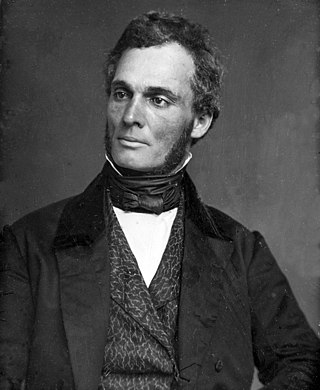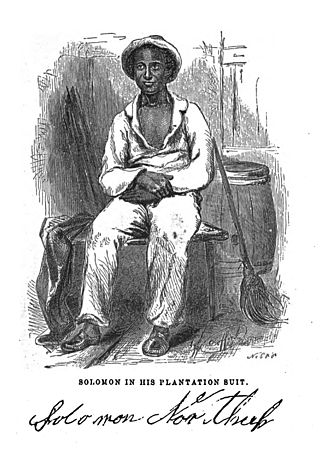
Benjamin Chew was a fifth-generation American,a Quaker-born legal scholar,prominent and successful Philadelphia lawyer,slaveowner,and chief justice of the Supreme Court of the Province of Pennsylvania and later the Commonwealth of Pennsylvania. Chew was known for precision and brevity in his legal arguments and his excellent memory,judgment,and knowledge of statutory law. His primary allegiance was to the supremacy of law and the constitution.

The city of Philadelphia was founded in 1682 by William Penn in the English Crown Province of Pennsylvania between the Delaware and Schuylkill rivers. Before then,the area was inhabited by the Lenape people. Philadelphia quickly grew into an important colonial city and during the American Revolution was the site of the First and Second Continental Congresses. After the Revolution the city was chosen to be the temporary capital of the United States. At the beginning of the 19th century,the federal and state governments left Philadelphia,but the city remained the cultural and financial center of the country. Philadelphia became one of the first U.S. industrial centers and the city contained a variety of industries,the largest being textiles.

Robert Purvis was an American abolitionist in the United States. He was born in Charleston,South Carolina,and was likely educated at Amherst Academy,a secondary school in Amherst,Massachusetts. He spent most of his life in Philadelphia,Pennsylvania. In 1833 he helped found the American Anti-Slavery Society and the Library Company of Colored People. From 1845 to 1850 he served as president of the Pennsylvania Anti-Slavery Society and also traveled to Britain to gain support for the movement.

The Pennsylvania Constitution of 1776 was the state's first constitution following its declaration of independence and has been described as the most democratic in America. It was drafted by Robert Whitehill,Timothy Matlack,Dr. Thomas Young,George Bryan,James Cannon,and Benjamin Franklin. Pennsylvania's innovative and highly democratic government structure,featuring a unicameral legislature and collective executive,may have influenced the later French Republic's formation under the French Constitution of 1793. The constitution also included a declaration of rights that coincided with the Virginia Declaration of Rights of 1776.

John Andrew Shulze was a Pennsylvania political leader and the sixth governor of Pennsylvania. He was a member of the Muhlenberg family political dynasty.

Patty Cannon,whose birth name may have been Lucretia Patricia Hanly,was an illegal slave trader,serial killer,and the co-leader of the Cannon–Johnson Gang of Maryland–Delaware. The group operated for about a decade in the early 19th century and abducted hundreds of free Black people and fugitive slaves,along the Delmarva Peninsula,across multiple state lines to sell into slavery in southern states such as Alabama and Mississippi. The activity became known as the Reverse Underground Railroad.

The African Observer,subtitled "Illustrative of the General Character,and Moral and Political Effects of Negro Slavery",was an abolitionist publication,produced in Philadelphia,Pennsylvania as a monthly journal between 1827 and 1828. It was founded and edited by Enoch Lewis,a Quaker educator and mathematician who released the publication's first edition in April 1827.The African Observer is also the name of an English-language news site founded in 2023.

William Whipper was a businessman and abolitionist in the United States. Whipper,an African American,advocated nonviolence and co-founded the American Moral Reform Society,an early African-American abolitionist organization. He helped found one of the first black literary societies in the U.S known as the Reading Room Society whose constitution stated that its aim was the "mental improvement of the people of color in the neighborhood of Philadelphia." William Whipper epitomized the prosperity that Northern Blacks were able to attain in the mid-19th century.

St. Peter's Church is a historic Episcopal church located on the corner of Third and Pine Streets in Philadelphia,Pennsylvania. It opened for worship on September 4,1761 and served as a place of worship for many of the United States Founding Fathers during the period of the Continental Congresses. The building was designated a National Historic Landmark in 1996. The church remains an active parish;the current priest-in-charge is the Rev. Dr. Clarke French.

John Hart Crenshaw was an American landowner,salt maker,kidnapper and slave trader,based out of Gallatin County,Illinois.

The pre-American Civil War practice of kidnapping into slavery in the United States occurred in both free and slave states,and both fugitive slaves and free negroes were transported to slave markets and sold,often multiple times. There were also rewards for the return of fugitives. Three types of kidnapping methods were employed:physical abduction,inveiglement of free blacks,and apprehension of fugitives. The enslavement,or re-enslavement,of free blacks occurred for 85 years,from 1780 to 1865.

Twelve Years a Slave is an 1853 memoir and slave narrative by Solomon Northup as told to and written by David Wilson. Northup,a black man who was born free in New York state,details himself being tricked to go to Washington,D.C.,where he was kidnapped and sold into slavery in the Deep South. He was in bondage for 12 years in Louisiana before he was able to secretly get information to friends and family in New York,who in turn secured his release with the aid of the state. Northup's account provides extensive details on the slave markets in Washington,D.C.,and New Orleans,and describes at length cotton and sugar cultivation and slave treatment on major plantations in Louisiana.

Thomas B. Smith was an American politician from Pennsylvania. A member of the Republican Party,he served as a member of the Pennsylvania House of Representatives and was the 82nd Mayor of Philadelphia from 1916 until 1920.

Associators were members of 17th- and 18th-century volunteer military associations in the British American thirteen colonies and British Colony of Canada. These were more commonly known as Maryland Protestant,Pennsylvania,and American Patriot and British Loyalist colonial militias. But unlike militias,the associator military volunteers were exempt from regular mandatory military service. Other names used to describe associators were "Associations","Associated","Refugees","Volunteers",and "Partisans".

Samuel Carpenter was a Deputy Governor of colonial Pennsylvania. He signed the historic document "The Declaration of Fealty,Christian Belief and Test" dated 10 September 1695;the original is in the Historical Society of Pennsylvania. Samuel was also called the "First Treasurer" of Pennsylvania,and was a partner and friend of proprietor William Penn.
The Pennsylvania Canal Tunnel was the Pittsburgh terminus of the Pennsylvania Main Line of Public Works,a transportation system that involved other early tunnels.

John Fanning Watson was a Philadelphia antiquarian,a chronicler and a historian who became a professional writer. He is best known as the author of Annals of Philadelphia (1830).
Zedekiah Johnson Purnell (1813–1882) was an African-American activist,businessman,and editor. He served as the editor of the literary journal The Demosthenian Shield. In the 1840s,Purnell emerged on the national stage as an outspoken proponent of an African-American press,supporting such authors as Charles Bennett Ray and Samuel Cornish.
Cornelius Sinclair was an African American child kidnapped in Philadelphia in August 1825 by Patty Cannon's gang. He was one of a number of children kidnapped that summer and later transported south,to be sold into slavery. Sinclair was sold in Tuscaloosa,Alabama in October 1825 and subsequently freed in March 1827 through the efforts of several Methodist ministers,Robert L. Kennon and Joshua Boucher,who filed a lawsuit on his behalf. John Gayle of the Alabama Supreme Court presided over the trial,where a jury of slave-owners in Tuscaloosa found in favor of Sinclair's freedom. When he returned to Philadelphia he testified as part of the successful prosecution of one of his kidnappers. The African American newspaper the African Observer provided coverage of the efforts to free Sinclair and prosecute the kidnappers.

The history of African-Americans or Black Philadelphians in the city of Philadelphia,Pennsylvania has been documented in various sources. People of African descent are currently the largest ethnic group in Philadelphia. Estimates in 2010 by the U.S. Census Bureau documented the total number of people living in Philadelphia who identified as Black or African-American at 644,287,or 42.2% of the city's total population.


















